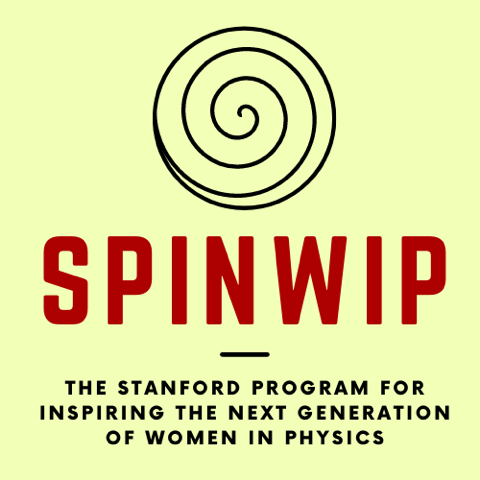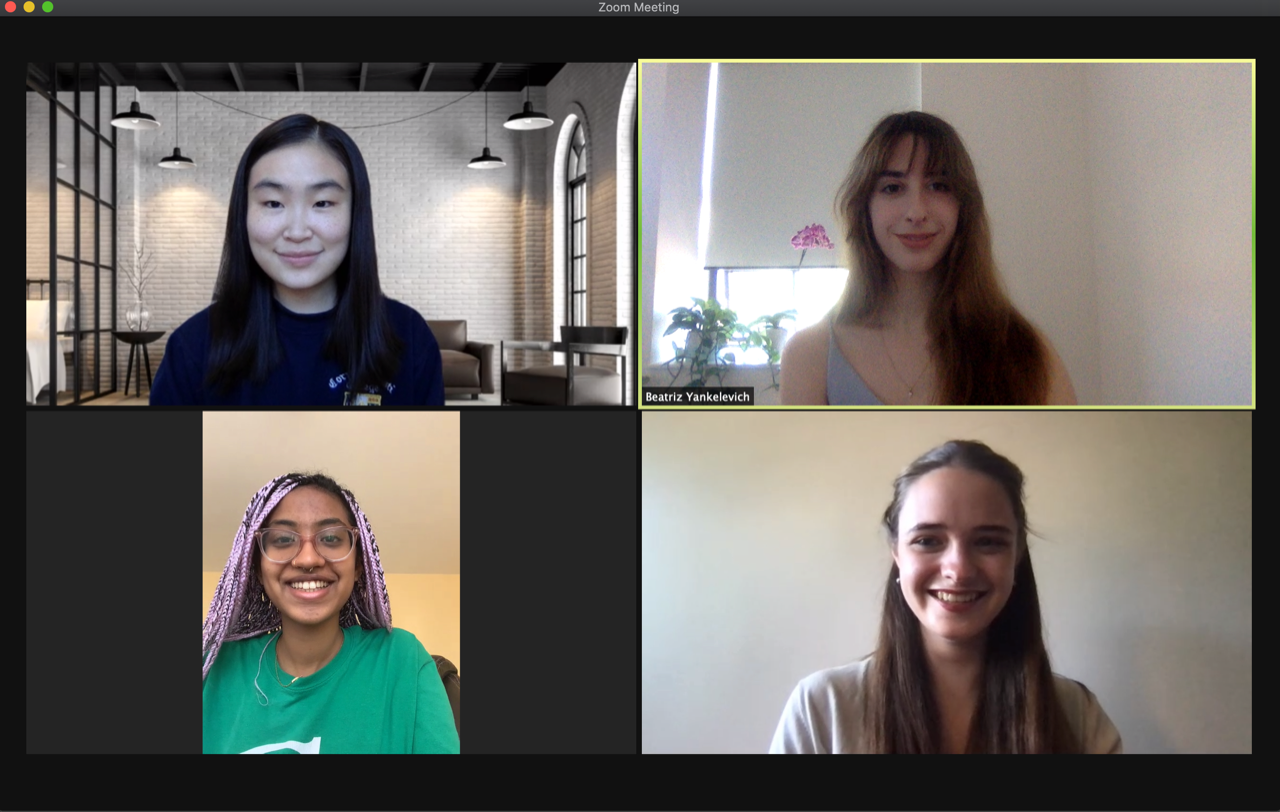Women earn less than a quarter of physics bachelor’s degrees, but a group of Stanford undergraduate women are seeking to change that.
The Stanford Program for Inspiring the Next Generation of Women in Physics (SPINWIP), a virtual three-week summer camp for high schoolers, seeks to expose women and first-generation low-income (FLI) youth to the possibilities of careers in physics and STEM and is taught entirely by women.
After campus shut down in March 2020 due to COVID-19, co-founder Beatriz Yankelevich ’21 read stories about the educational challenges high school students were facing with the closures of schools and summer camps. Motivated to address this learning loss, Yankelevich recruited co-student organizers Amber Yang ’21 and Sophie Decoppet ’21 to create a virtual, free STEM camp for high schoolers, targeted toward FLI students and girls. The camp, Girls in Science and Engineering Stanford Summer Program, took place last summer over two weeks and focused on broad STEM education. The original program has been renamed SPINWIP for summer 2021 and will have a more physics-specific curriculum.
Physics professor Risa Wechsler, a faculty advisor for SPINWIP along with associate physics professor Monika Schleier-Smith, says that the underrepresentation of women and racial minorities in physics is “a crisis for the field.”
SPINWIP hopes to address this crisis by exposing students to role models. Yang explained that it can feel isolating to look around a classroom and realize you are one of only a few women. That is why representation is so important, according to Decoppet.
“I think many girls in high school are intimidated by physics, and STEM subjects generally, as a potential career/study path, because they don’t see people like them studying physics,” Decoppet wrote in a statement to The Daily. “The purpose of SPINWIP is to turn that expectation on its head and showcase a wide variety of faces working and succeeding in science.”
Mirelys Mendez Pons ’25 appreciated meeting other women in science when she participated in the program last summer before she got into Stanford.
“STEM is mostly dominated by men and being in a place where we were all girls, I wasn’t afraid to be myself or to ask questions,” Pons said.
Pons also benefited from the affordability of the camp, which is free and focuses on accepting and recruiting FLI students. Although not all students are accepted into the camp due to capacity limitations, the teaching team makes recordings of the lectures and worksheet copies available to all applicants in order to serve as many students as possible. Being a virtual program makes the camp more affordable and accessible for students since they can participate while balancing other responsibilities.
“Students were able to participate in the program while they were taking care of family or having jobs or other things,” Wechsler said.
Existing virtually also gives SPINWIP a global reach. Pons participated in last year’s program from her home in Puerto Rico. According to Yankelevich, the 2021 camp already has applicants from Kenya, Egypt, Bangladesh, Mexico and Brazil. In total, last year’s program served approximately 80 women and non-binary students and expects to have a similar number of participants this year.
Besides representation and financial barriers, students may be barred from physics programs due to a lack of exposure. The student organizers explained that many high school students don’t have high-quality physics education. And if students are exposed to physics, it may not be engaging.
Yankelevich explained students really don’t get to the exciting stuff until they are well into a physics degree: “And so the idea here is to show these kids what exciting, cutting-edge physics research looks like in an accessible way early on.”

SPINWIP will run on weekday mornings with students attending lectures and small discussion sections. Last year, the camp was run largely by volunteer undergraduate counselors. This year, SPINWIP has secured grant funding so that counselors can be paid. Students will spend the first half of the program learning the coding language Python and the second half applying those skills to projects in quantum computing, cosmology and astrophysics. The camp will also bring in professors and graduate students to talk to the students and give guidance on college applications.
After last year’s program, Yankelevich realized that the “barriers to a college application are just so much greater than I could have even imagined.” The college guidance and mentorship provided during the camp were crucial for Pons, who partially credits the camp with her Stanford acceptance.
“I was in 11th grade, and I didn’t even know what the SAT was, what the Common App was,” Pons said.
Going forward, Yang wants SPINWIP to foster more of the mentorship mentality that helped Pons through the college application process. The program team is also hoping to more systematically track student outcomes, according to Yankelevich, to see how participation in the camp impacts student college and STEM experiences.
SPINWIP is currently accepting applications for its 2021 cohort, which close on Sunday, May 23. The student organizers are excited for the coming camp and hope that the program persists long after they graduate.
“Hearing back from the girls who participated last year truly made me realize how much a program like SPINWIP can make a difference,” Decoppet wrote. “Even if it’s just two or three girls who end up pursuing physics, that’s already a huge win!”
